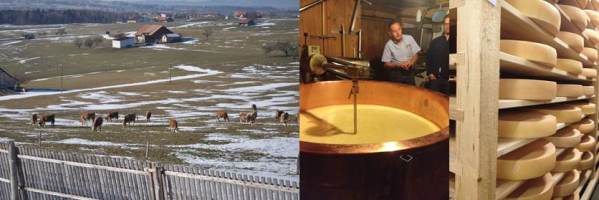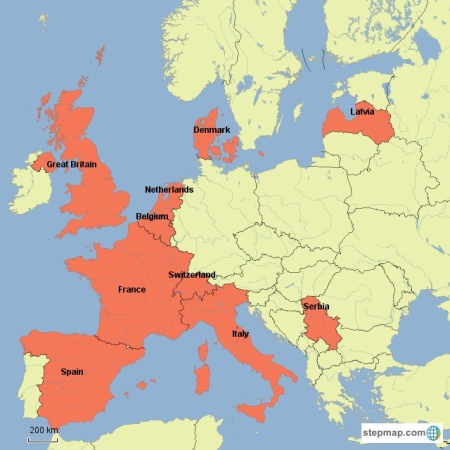Global and Local food chain Assessment: a MUltidimensional peRformance-based approach (GLAMUR)
Summary
Nowadays, consumers have a great variety of choices concerning food products and a lot of them ask themselves if they should rather buy local food, in a multitude of other choice options. Some often heard arguments are that local food is better for the region’s economy, it’s better for the environment or ethically better, but there is so far no scientific confirmation of these hypotheses. This project is trying to find answers to this question through the study of twenty cases in Europe. Supply chains of more local products will be compared scientifically with more global supply chains of the same products. The comparison will be made with data concerning the performance of the chain on five dimensions: environment, economic, social, health and ethic.
GLAMUR is a project funded by the European Union’s 7th Framework Program and is involving 15 research groups in 10 countries in the EU (plus Switzerland). The main research question of the project is: How do local food supply chains compare with mainstream supply chains in the key dimensions of economic, environmental, and social performance, and ethical and health impacts?
As the goal in the GLAMUR project is to assess performance in multiple dimensions, it will be done primarily by integrating previous studies and further by complementary stakeholder interviews and surveys. During this process, we will identify which factors make a chain perceived as ‘local’ in the literature and by different stakeholders and by which criteria local chains can be characterized. In a second step, specific quantitative data will be collected and analyzed for critical issues making the difference between local and global chains performance. The qualitative data collected through interviews and the secondary quantitative data will serve to evaluate performance in the five dimensions (environment-economic-social-ethic-health).
Specific objectives of the project are:
- To advance knowledge on methodological problems and trade-offs arising when measuring and comparing the impact of food chains within and between sectors.
- To assess how performance is perceived by stakeholders in different national contexts through participatory assessment and multicriteria analysis of the different typologies of food chains.
- To assess the actual and potential role of public and private policies addressing food chains and to turn assessment into policy recommendations.
- To build a network that turns the advancement of scientific knowledge into decision making tools for domestic and public consumers, producers, citizens, scientists, policy makers, civil society organizations.
As the goal of the GLAMUR project is to assess performance of food chains in multiple dimensions, a holistic and transdisciplinary approach is necessary. A first step will be to identify which factors make a chain perceived as ‘local’ in the literature and by different stakeholders and by which criteria local chains can be characterized in opposition with global food chains. In a second step, a specific selection of attributes around the five sustainability dimensions cited above will be used to measure the food chains’ performance and compare them. These attributes of performance will be the result of literature analysis and interviews with actors involved in the food chains. Moreover, attributes will be selected following some criteria of feasibility, and in order that the list of data to be collected remains short and nevertheless sufficient. In the Swiss context, a selection of 18 attributes has been established so far in order to complete the multi-dimensional performance assessment.
These attributes will then serve to measure the performance on several case studies in Switzerland. Specific qualitative and quantitative data will be collected to assess a performance score in each of the attributes and sustainability dimension. The case studies will concern the dairy and wine sectors in Switzerland. In the dairy sector, a comparison will be made between different chains of milk and hard cheese. It was found that some chains of dairy products are rather global through the massive imports of feed for cows, like soybean concentrate from Brazil and through the exports of the final product, especially cheese. On the contrary, local chains are characterized by regional products specifically restricting the supply area for feed.
The comparison will further be made with similar case studies in the other participating countries in Europe. Hopefully, advantages and weaknesses of local chains in comparison with global chains will be shown in different product categories and for multiple sustainability dimensions.
More information: external pagewww.glamur.eucall_made
For further questions please contact Johan Six ().
Country: Switzerland and Europe
Product: Cheese, milk and wine
Project duration: 2013-2016
Project partner: Wageningen University (Netherlands); Centro Ricerche Produzioni Animali C.R.P.A. S.P.A. (Italy); City University London (UK), KU Leuven (Belgium); FiBL – Forschungsinstitut für Biologischen Landbau (Switzerland); INRA – Insitute National De La Recherche Agronomique (France); icta – Universitat Autonoma De Barcelona (Spain); BSC – Nodibinajums Baltic Studies Centre (Latvia); Aalborg Universitet (Denmark); Ekonomski Fakultet Univerzitet U Beogradu (Serbia); iied – International Institute For Environment And Development; FIRAB – Fondazione Italiana Per La Ricerca In Agricultura Biologica E Biodinamica (Italy); Clm Onderzoek En Advies Bv (Netherlands); CCRI – Countryside and Community Research Insitute (UK)
Project funding: EU 7th Framework Program – Global and local food assessment: a multidimensional performance based approach (GLAMUR)



